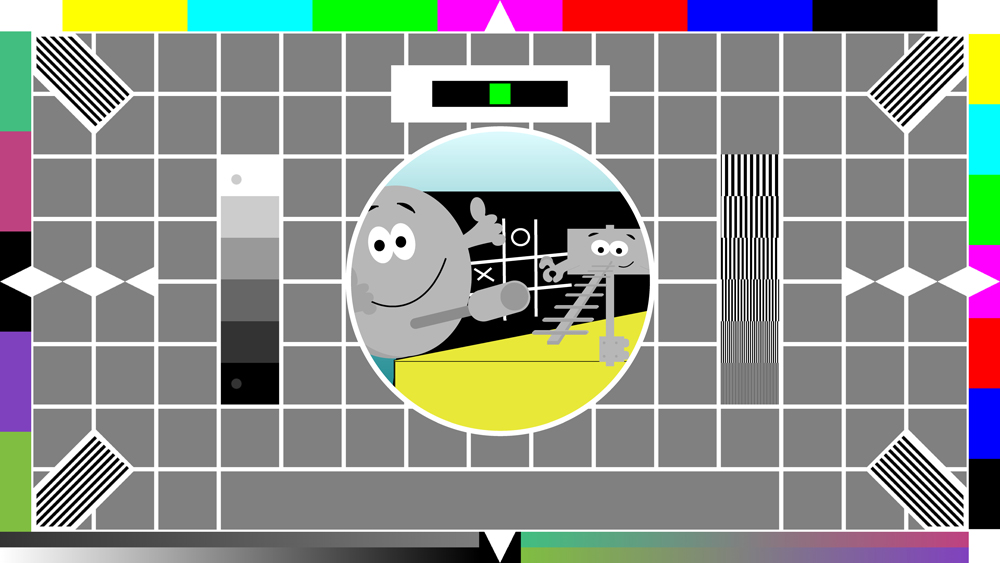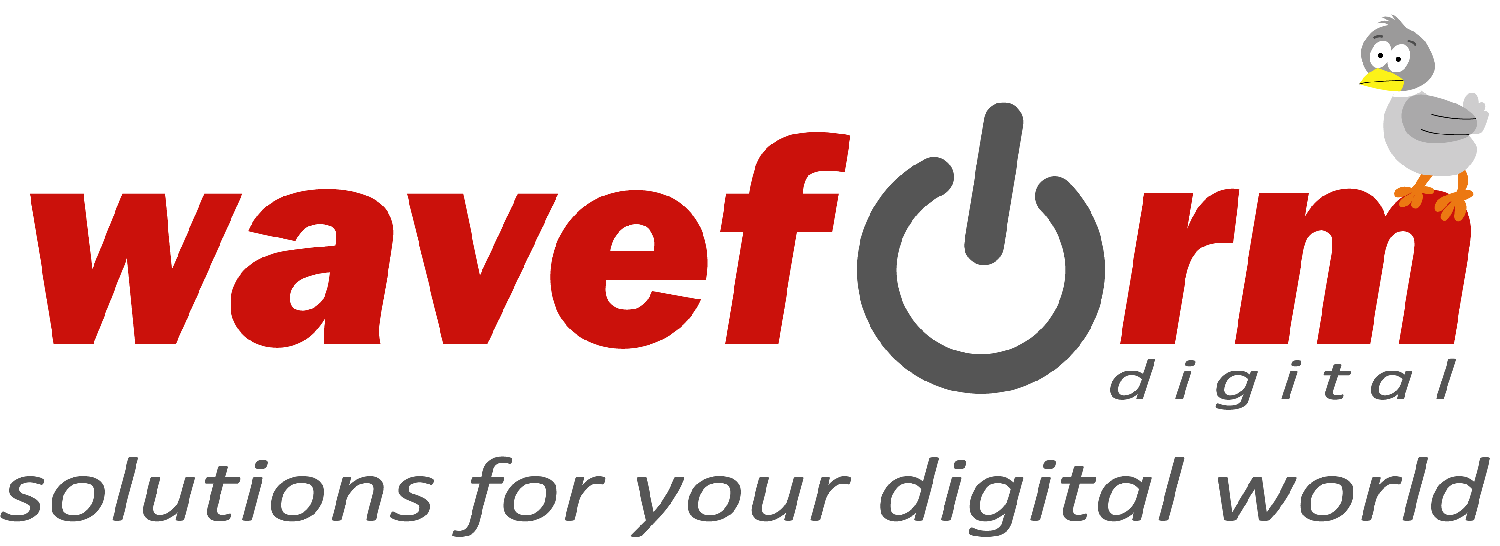
Aerial and Satellite Installations | Home Network and WiFi solutions | Smart Home Security - serving Dartford and surrounding areas
Blog - What does the future hold for UK television - by Stuart Bedford
UPDATED - 13:25 Saturday 20th September 2025
What’s the future for UK TV?
Are the days of free public service broadcasting numbered? Are we sleep walking into paying for TV content we’ve always enjoyed for free?
To come anywhere near close to answering these questions we first have to look back in time to see where we’ve come from. From the very early days
of black & white analogue TV through to today and the wealth of home entertainment media, the world has seen an ever accelerating trend to digital
content and then to streamed media content in recent years.
For myself it only seems like yesterday that as a nation we enjoyed three TV channels, then four with the launch of Channel 4 in the 1980s then
five with the launch of Channel 5 in 1997. These were the UK’s free public service broadcasting TV channels. Free except for the BBC licence fee
and in the case of the commercial TV channels funded by the advertisers in turn for exhibiting their wears to us every 15 minutes or so. In fact
some of the TV ads of the 80s and 90s would eclipse the main programming. Unless you were one of the relative few that jumped on the pay TV
satellite train with BSB and Sky in the 80s and 90s (ultimately merging) those five channels seemed enough along with our VCRs and DVDs.

The digital TV revolution began in 1998 with many more free TV channels at our finger tips.
Soon after, TV then revolutionised our lives with the likes of Sky+ giving the ability to pause
live TV, record effortlessly to a hard drive, watch what we wanted when we wanted and conditioned
us to fast forward past those pesky advert breaks. No more were VCRs a staple ingredient in our
sitting rooms and with advertising being spread more thinly around so many more digital channels
the quality of the ads inevitably declined. No longer would we wait with baited breathe for the
next instalment of the Gold Blend couple, be enthralled simply by the context that the names
Nicole and Papa would be used and what the Renault characters antics were this time or be entertained
by a rotund semi naked orange man running around in circles and giving an unexpected slap around the chops.

More PVRs entered our homes in the shape of
Virgin media’s TiVo boxes and Freeview and YouView boxes all allowing the same freedom to record programmes
from live TV schedules and watch at our own convenience again with the ability to whiz past those ads. But
ultimately and inevitably this began to irritate the TV advertisement industry, advertising budgets being
effectively thrown away with the consumer being given the option to ignore them almost completely. Change was afoot.
Streaming services began popping up with BBC iPlayer the cornerstone of free TV streaming in the UK launched in 2007.
But still broadband speeds could be left wanting in many corners of the country making streaming a blocky fuzzy fuss
for many. But the convenience of finding that programme or box set that you wanted to watch, ready to be streamed when
you wanted it was too good an opportunity to turn down. Was this to mark the beginning of the end of linear TV with
daily schedules? Well certainly not just yet as demand for live TV programmes and sporting events continued to be strong.
Well, time will ultimately tell.
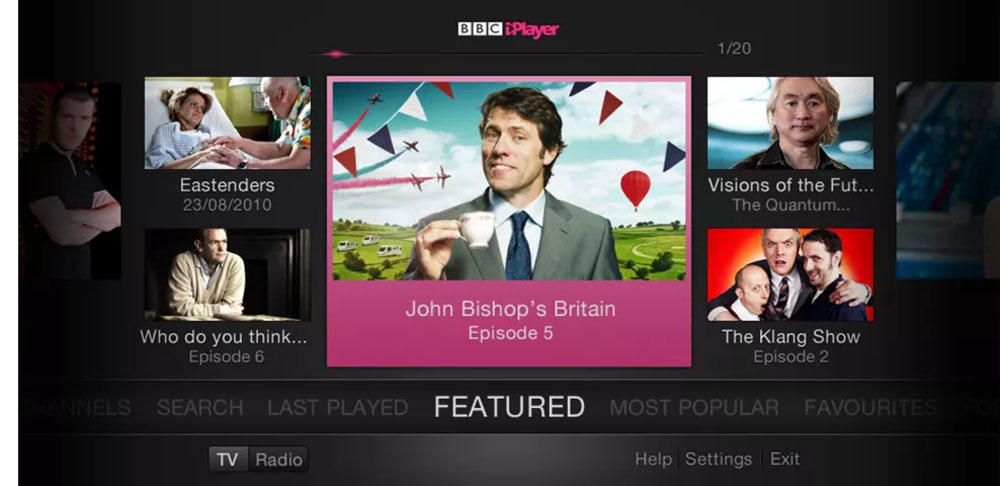
At the same time as this digital progress internet speeds had been slowly accelerating. Faster broadband was being rolled
out world wide and video content online became more than just a possibility. Although Netflix was founded in the USA in ‘97
its original concept was in DVD rental with home delivery. Flicks you could rent on the net! No more traipsing to Blockbuster
video stores. But it wasn’t until 2008 that Netflix began streaming video content and not here in the UK until 2012. It’s
hard to believe that the London Olympics and Netflix hitting the UK for the first time happened in the same year.

Also in 2012 the digital switchover in the UK was finally taking place. We waved a tearful final goodbye to analogue terrestrial
TV channels which freed up multiple frequency bands for a game of musical chairs to relocate the array of digital TV multiplexes
and also allow the transmission strengths of these digital signals to be significantly increased. Suddenly digital terrestrial
reception became easier to implement without battling to not cause interference with the grandfather analogue pictures.
Sky launched their innovative SkyQ system in the UK in 2016 where their mini boxes could connect wirelessly to the one main box
connected to the satellite dish alleviating the need for cables all over the house in multi room installations. However in
practice a good old hard wired network connection trumped the wifi connection every time. “If it can be cabled it should be
cabled” a mantra I use on nearly a daily basis. SkyQ, in my opinion when working perfectly, should go down in history as
perhaps the pinnacle of UK TV perfection. The perfect blend of live TV channels from the dish in perfect picture quality,
streaming services all in one place, connected multiroom technology, why Sky would ever want to diverge from here would be
a mystery. But there is one reason. In fact maybe a list of reasons, but not for the good of the consumer. We’ll come to that in a moment.
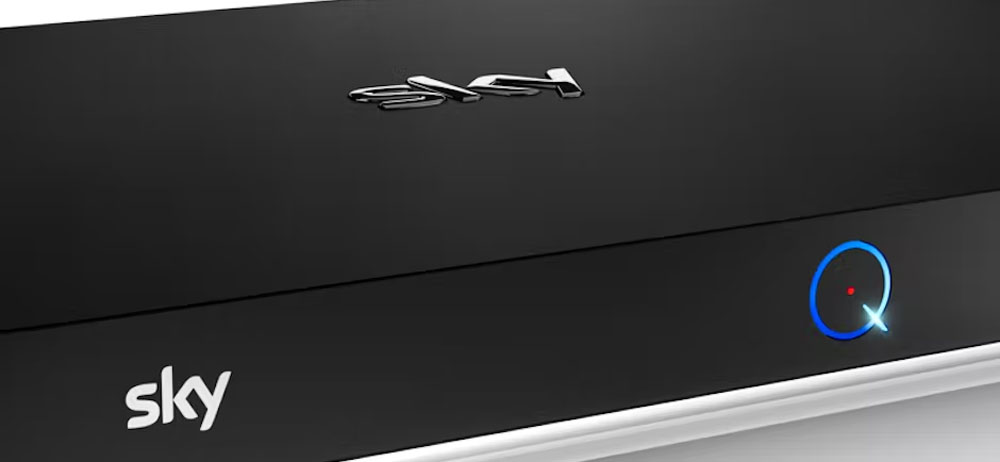
Which brings us up to present day. Today we see a plethora of TV services all jostling for position served in various different
guises. Freeview, Freesat, Sky Q, Sky Glass, Sky Stream, BT TV, Virgin 360, Virgin Stream, Netflix, Prime Video, Disney+, Paramount+,
YouTube, the list goes on. All are funded either by the subscription model or by advertisement revenue or a combination of both.
All fighting for our hard earned money. It’s an easy trap to fall into to find yourself subscribing to too many services and not
getting value for money.... And of the list above all except Freeview and Freesat require a broadband connection to serve you with
the advertised content in the first place. More expense!
Speaking again of Sky Stream, in principle it sounds great if you like the idea of having additional Sky content, all without a
dish or even a TV aerial. Yes you can even stream (but not all) Freeview channels directly from your internet connection. But
hang on? To use these “free” services, these free to air public broadcast channels, you have to pay Sky and also your broadband
provider? Surely the concept of free means that it’s free! The clue is in the name, Freeview. The sleepwalking, the unconscious
conditioning of paying for something that is actually free via another source has begun. Granted, to receive free to air TV you
do need an aerial, but that’s a one off expense that will last decades. An investment if you will.
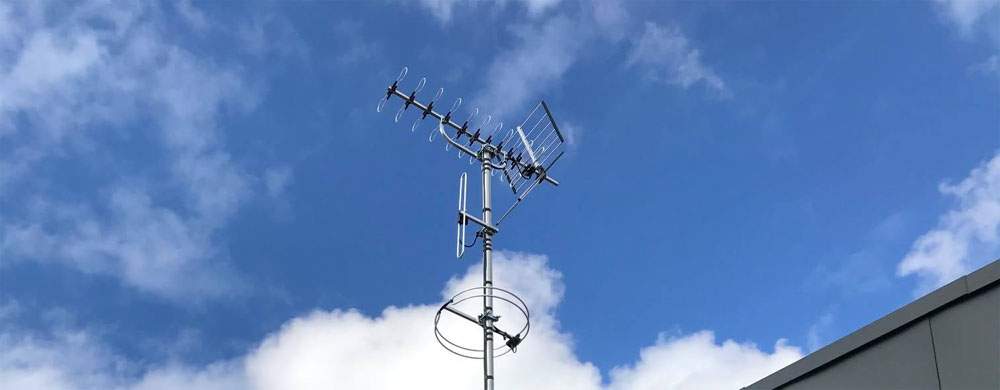
Most likely the true reason that Sky are moving to a dish less model, everything streamed over the internet, is to cut their
own costs and boost profits in the medium to long term. Once there is no need for a dish, there’s also no need to lease a
satellite, which leasing such a satellite has astronomical costs (pun intended). Sky have recently renewed their lease of the
Astra 2 satellites until 2028 but beyond this date, who knows. And with a dish less model Sky have the ability to simply “post”
the Sky box to the customer who plugs it in themselves, thus essentially cutting their workforce of installation engineers and
reducing costs further.
I’m often asked if all TV will be streamed only over the internet in the not too distant future? If the necessity of an aerial or
a satellite dish will become obsolete? Or more pertinently, will transmissions cease pushing everyone to TV over IP only? The
truth is, I don’t know for certain. We are certainly heading in that direction as a society, our reliance on the internet is
becoming greater and greater. But the timescales of such monumental change will no doubt be drawn out. Not only are there many pockets of the UK with little or no internet coverage or slow speeds still even today but also we have an aging population who would be less likely to embrace such a radical and fundamental change or even not cope with such sudden upheaval at all. It’s a sad fact that for some elderly, inviting the familiar faces of daytime TV into their home on a daily basis is the only company some have. And making this more difficult and more costly with only internet based streamed TV in the UK would inevitably isolate many and the most vulnerable.

Sadly and ultimately generations pass as old father time passes us all by and the age argument will dissipate with time. But
let’s also not forget the disabled and those with learning difficulties. TV has been exceptionally easy to watch for decades,
press the power button and the TV is on. Maybe hop up and down a channel or two. If every time we want to watch TV we have to
jump through several hoops, launch apps, find live TV or decide upon content to watch this would quickly become tiresome and
simply impractical for some. Sometimes we just want the comfort of familiarity, a simple daytime game show, to watch Ben
Shepherd asking a mix of easy and odd questions and commentating on some oversized metal counters tipping over a sliding
shelf. Something easy to consume, to relax in front of as a time to decompress, de-stress and wind down, to literally switch off the brain.

And what of TV scheduling? Programmes are called programmes because in the infancy of TV broadcasts each segment of viewing
was programmed into a viewing schedule. Will we still need or be offered a daily list of linear TV programmes on channels
in the future at set times of the day? Well it’s pretty clear that TV channels will continue to exist in the form of their
individual entities. BBC, ITV, Channel 4, Channel 5 all have their own individual streaming services today and I’m sure they
will still be segregated in the future. They want our viewership to be loyal to them to continue to be able to attract
advertising revenue. It’s a competitive market out there! But will they continue with a set time for programmes to be
viewable on a “live” basis? I see no reason not to. We human’s are creatures of habit, whether we realise it or not we live
our lives by the ticking of our timepieces and our daily routines. A set TV schedule for each broadcaster still makes sense,
breakfast programming, news bulletins and daytime viewing all with the added bonus and flexibility of on demand content too,
this really is the definition of watch what you want when you want it.
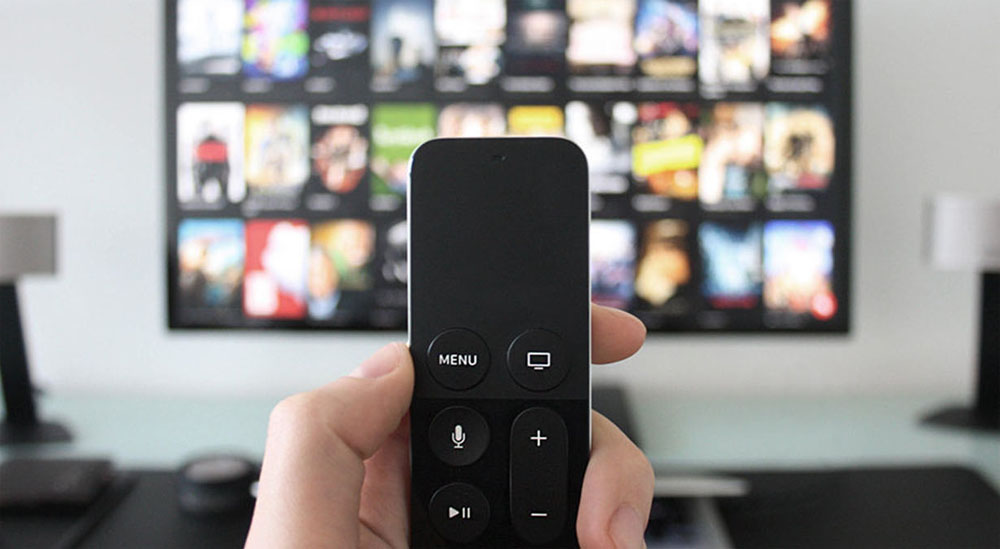
For me the most worrying thing about a future of TV only delivered via the internet is the vulnerability of having all eggs
in the one basket. From simple home network issues, wifi interference and router crashes causing annoying outages for
households to the more sinister cyber attacks. In fact at the point of writing this today Virgin Media customers have
suffered internet blackouts for most of the day. Which leads us to think of the complete control of the internet service
provider to close off your connection to the outside world with no other avenues to turn to are all a concern particularly
in the event of an unfolding national crisis. And again, all the while we are expected to pay for our internet connection,
free TV would no longer be free.
Another major drawback I can see is the necessity to continually update equipment unnecessarily. A perfectly good working
TV for instance rendered obsolete by being left behind by “progress” in a matter of years. We’ve probably all had a smart
phone, tablet or other device that is no longer supported with software updates and therefore no longer able to support the
required apps leaving no choice but to upgrade and replace the item. The same can be said for smart TVs. Some early smart
TVs already no longer support the apps required to fully integrate and can’t keep up with progress. Not so smart after all.
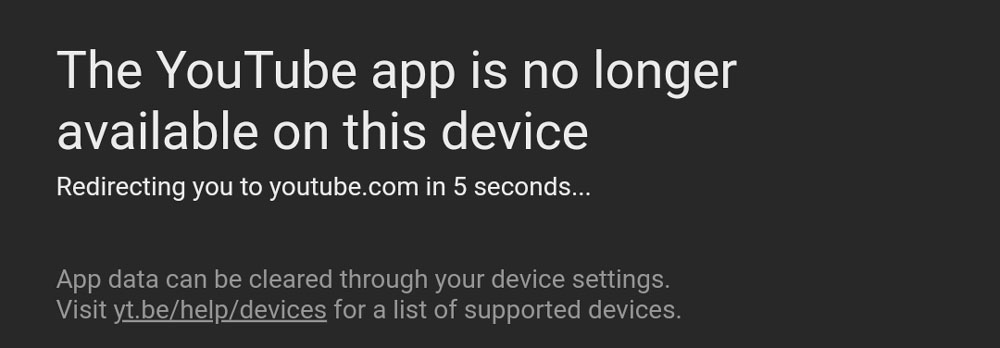
It is written into UK legislation that the UK’s public service broadcasters (BBC, ITV, Channel 4 and Channel 5) must be ”free at
the point of access”. A phrase we also hear all too often about the NHS, but where do we define the “point of access”? Is that
free and available to all without any costs incurred, such as Freeview and Freesat, just the necessity for the relevant
receiving equipment? This is how things have always been since the launch of BBC TV in 1936. In theory, if over the air
transmissions ceased and PSB broadcasts were over the internet only, the only way these could be “free at the point of
access” would be if an internet connection was free. I can’t see that happening any time soon, there’s far too much money
to be made by private telecom companies.
This is further bolstered by the recent introduction of Freely, the free TV streaming service from the same organisation
that brought us as Freeview and Freesat. "All you need is wi-fi" the advertisements claim, but of course you also need a
broadband connection which requires a subscription to a telecoms provider. Ultimately it appears that this service is
intended to replace its predecessors Freeview and Freesat over time as it will ultimately reduce the costs in terrestrial
and satellite transmissions. Currently only a handful of TV brands have adopted or been licenced to include the service on
their products and it still remains that previous almost new and older TVs will be without this service.
So, the future of UK TV is a little hazy to say the least. It will be driven by our viewing habits but also by the ever changing
landscape of technology available to us. But I feel we mustn’t lose sight of what we want to watch and where we can watch it truly
for free. If we sleep walk into paying for something that’s always been free, big corporations are going to look the other way
and allow us to line their pockets.
By Stuart Bedford - 4th April 2023 (updated 20th September 2025)
